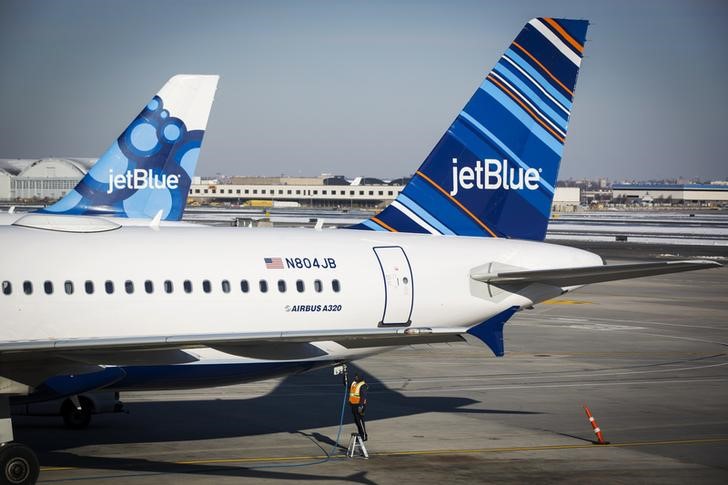Gold prices edge up amid Fed rate cut hopes; US-Russia talks awaited
Investing.com -- Spirit Airlines’ recent complaint to the U.S. Department of Transportation (DOT) over the JetBlue-United “Blue Sky” partnership appears to lack substance and could potentially backfire, according to Deutsche Bank (ETR:DBKGn) analysts.
Earlier this week, Spirit called for an extended DOT review of Blue Sky, claiming it “appears to constitute an anticompetitive unfair method of competition that must be prohibited.”
However, Deutsche Bank noted that Spirit “admitted that it had limited information to support its claim.”
The analysts were surprised by the filing, given that Blue Sky is “essentially an interline agreement with frequent flyer reciprocity and some swapping of slots/runway timings,” most of which do not require regulatory approval.
Unlike the defunct Northeast Alliance between American and JetBlue, Blue Sky is said to involve no revenue sharing or capacity coordination.
Deutsche Bank added that JetBlue and United’s deal is a “watered down version of another domestic accord, American - Alaska,” which was cited in the NEA ruling as an acceptable model.
Spirit also argued that JetBlue’s loyalty tie-up with United would raise fares because of higher costs to purchase United miles.
“We think they have this backwards,” Deutsche Bank wrote, noting that mileage sales will be bi-directional and may even favor JetBlue.
Spirit further claimed the partnership would worsen airport access for new entrants.
Deutsche Bank countered that Blue Sky could “finally give United access to JFK,” connecting its global network and boosting consumer surplus.
While some may see the complaint as typical competitive posturing, Deutsche Bank warned that “regulators have a history of undermining a company with its own public record,” raising the question: “For Spirit, is the risk worth taking?”
